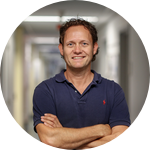About This Project
Vitamin K2 may reduce cardiovascular calcification and help improve bone health for people on kidney dialysis. Cardiovascular disease is 10 to 20 times more common in dialysis patients than in the general public. Therefore, our aim is to find if treatment of vitamin K2 for 12 months will be superior to placebo for improving vitamin K levels (matrix gla protein (dp-ucMGP)). We also aim to see if vitamin K2 will also improve pulse wave velocity (arterial calcification).
Ask the Scientists
Join The DiscussionWhat is the context of this research?
Patients on dialysis have high rates of vitamin K2 deficiency and also have the highest rates of arterial calcification compared to any other group of people. Part of the reason for this is that a common medication they take depletes vitamin K2. Early research shows that vitamin K2 works to help reduce arterial calcification. In fact, vitamin K2 deficiency increased the risk of arterial calcification in this group by over 8-fold. Vitamin K2 supplementation improves vitamin K status in patients, but the effective dose remains unknown. No long-term studies have been conducted in dialysis patients to determine the effectiveness of higher dose vitamin K2 on arterial stiffness. We will provide a dose of 2 mg per day, which is safe and thought to be a more effective dose.
What is the significance of this project?
While several research projects have supplemented vitamin K2 in dialysis patients, many have failed to provide adequate doses or have been too short in duration. We will give 2 mg per day, which is a safe dose and is a higher dose than other clinical trials. Other studies have measured arterial stiffness and calcification, but the duration of their trials have been too brief to fully assess the effects of vitamin K2 on arterial health in this vulnerable population. By improving arterial elasticity, vitamin K2 may improve dialysis patients' quality of life by reducing vascular pathology, which may cause physical and mental morbidity.
What are the goals of the project?
The goals of this project are simple. We want to determine if giving vitamin K2 over the course of a year to dialysis patients improve their arterial health. Our goal is driven by the fact that we see our patients' hearts and arteries age so quickly once their kidneys fail and require dialysis. We will include 100 patients who receive chronic hemodialysis who have been stable on treatment for 6 months. At baseline, three months, and at one year, we will measure arterial stiffness and vitamin K2 status with blood work and by using pulse wave velocity measurements. Our controls will be our baseline status of arterial stiffness and vitamin K2 status.
Budget
The pulse wave velocity machine is essential to determine if vitamin K2 improves artery health and reduces arterial stiffness in this vulnerable population. We will be measuring pulse wave velocity with the Complior Analyse device, which is clinically validated to be accurate for measuring arterial stiffness, on 100 patients at 3 intervals throughout the study.
Vitamin K2 analysis will be conducted by Dr. Shurgers in Oslo, Norway, so samples will need to be shipped there on dry ice. The estimated cost of shipping will be for dry ice and for 400 total samples.
Endorsed by
 Project Timeline
Project Timeline
Vitamin K2 will be given at the end of each treatment for all patients and levels will be compared to baseline at 3 months and at 12 months. Arterial stiffness, as measured by pulse wave velocity, will be measured at these same time points. All other routine lab values will be collected as well at these increments.
Feb 16, 2021
Vitamin K2 status and arterial stiffness measured at baseline
Feb 17, 2021
Project Launched
May 17, 2021
Vitamin K2 status and arterial stiffness measured at 3 months
Feb 21, 2022
Vitamin K2 status and arterial stiffness measured at 1 year
Meet the Team
Team Bio
Dr. John David Anthony Lakatua is our medical director who oversees this research project. His expertise as a nephrologist helps to assure the safety and effectiveness of this research project.
Heidi Moretti, MS, RD
My motivation for research is to improve the lives of patients with illnesses in safe and cost effective ways. I have been working as a clinical nutritionist and researcher for over 20 years, and have found many nutritional therapies that may reduce healthcare burdens.
Lab Notes
Nothing posted yet.
Project Backers
- 12Backers
- 25%Funded
- $2,391Total Donations
- $199.25Average Donation

